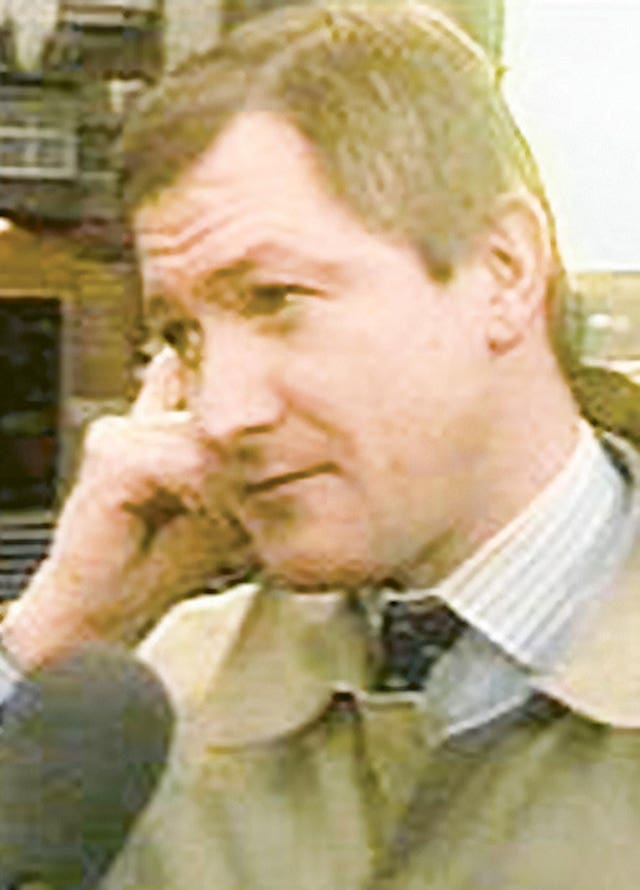Pat Finucane case sparks accusations of ‘double standards’ for victims
Concerns are raised in the House of Lords over ‘a hierarchy of victimhood’.

Most victims of the Northern Ireland Troubles have been left “to stew in their own juice” it has been claimed at Westminster, amid accusations of “double standards” over the high-profile case of Pat Finucane.
Concerns were raised in the House of Lords as controversy continued following the Government’s decision not to hold a public inquiry into the murder of the Belfast solicitor, who was gunned down by loyalist paramilitaries colluding with the state.
Mr Finucane, 39, who represented republican and loyalist paramilitaries during the conflict, was shot dead in his family home in north Belfast in February 1989 by the Ulster Defence Association (UDA).

Democratic Unionist Party (DUP) peer Lord McCrea of Magherafelt and Cookstown said: “Over 3,500 people were murdered, many butchered to death in the most cruel fashion, and tens of thousands were injured and scarred for life.
“Every murder, including Pat Finucane, is to be unreservedly condemned. And coming from a family whose loved ones were also murdered I know the pain and heartache caused.
“I believe that every person is equal under the law and equally subject to the law. But the Finucane case as it has been presented places this family in a class of its own – a hierarchy of victimhood.”
Tory frontbencher Viscount Younger of Leckie said: “It would be wrong to make comparisons with other dreadful crimes that took place.
“The Government wants information recovery and reconciliation to be at the heart of a revised legacy system that is fair and proportionate that deliver for victims from all communities.
“The point is we need to look forward and not backwards, but equally look at the legacy of the past.”
Tory peer and former special adviser at the Northern Ireland Office Lord Cain said: “This was a vile murder for which there was no justification along with many thousands of others in Northern Ireland over the period of the Troubles.
“Does the minister agree the right approach to legacy is not highly selective, one-sided, open-ended and costly public inquiries, but to establish mechanisms that have broad community support and which have the potential to offer better outcomes for all those who lost loved ones in the Troubles?”
Stressing that collusion was wrong, he added: “We should never forget the vast, vast majority of those who served in Northern Ireland in the RUC and the armed forces did so with exemplary professionalism, integrity and bravery.”
Former Ulster Unionist leader Lord Empey said: “The issue which runs through this particular case and the differing opinions about it is one of double standards.
“The vast majority of victims have no lobby groups working on their behalf and their cases are barely mentioned.”
He added: “In this particular case there was collusion, that has been admitted. I wanted to ask the minister why is it that collusion that is clearly an issue for the Irish government, when in the 1970s senior cabinet ministers were involved in the creation, financing and equipping and training of the Provisional IRA is never mentioned?”
Pointing out other legal figures had been killed in Northern Ireland, including several members of his own party, the peer said: “There appears to be a different stream for people who have big political connections, particularly in the United States, and the majority of victims are left basically to stew in their own juice.
“Why is it there is no focus on the involvement and apology sought from the Irish government as well as our own?”
Deputy leader of the DUP Lord Dodds of Duncairn said: “The murder of Pat Finucane in 1989 has been and should be condemned as wrong and wicked and so too are the murders of all innocent victims in Northern Ireland and elsewhere.”
He accused Sinn Fein “and their fellow travellers” of refusing to condemn the murder of other judges of and lawyers.
“Indeed they still eulogise and glorify their terrorist killers,” he said.
Reading out a list of victims, Lord Dodds added: “Their families too deserve to know who planned and who colluded in their murders. We remember them also.”





